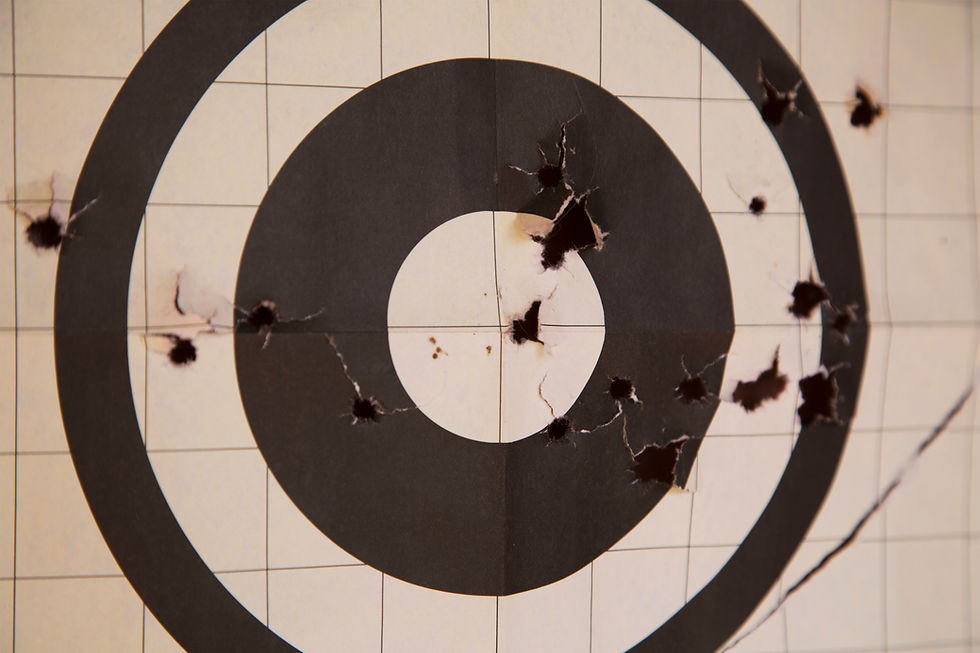A Psychological Recovery Plan for Traders Inspired by A.Elder
- Paul Nawrocki
- Jul 10, 2025
- 3 min read

12 Steps for Traders by A. Elder - Not only beginners
Day trading is a high-stakes psychological battlefield. While most traders chase profits with indicators and chart patterns, few acknowledge the real battle — the one within their own minds. Dr. Alexander Elder, renowned trader and psychiatrist, emphasizes that mastering trading psychology is the key to long-term success.
Inspired by the famous 12 Steps of Alcoholics Anonymous, here is an adaptation for traders — a roadmap to emotional discipline, developed in the spirit of Elder’s philosophy.
1. We admitted we were powerless over the market — that our trading had become unmanageable.
"The market is bigger than any ego. The sooner you accept that, the longer you’ll survive." – A. Elder
Every trader hits a point where emotions overpower logic. Revenge trades, panic sells, overconfidence — they erode both capital and peace of mind. The first step is admitting that you can’t control the market — only your response to it.
2. We came to believe that a power greater than ourselves could restore us to sanity.
This “higher power” in trading may be a tested strategy, a trading plan, or a mentor. Elder teaches that structure and discipline can anchor traders who otherwise float aimlessly through chaos. Without rules, impulse takes over.
3. We made a decision to turn our will and our lives over to the care of that higher power.
This is the moment when the trader stops gambling and starts following a plan. Elder calls this "transitioning from emotional to strategic behavior". Your system becomes your guide — not your mood.
4. We made a searching and fearless psychological inventory of ourselves.
"A trading journal is a mirror — it never lies." – A. Elder
Here, traders reflect deeply on their behavior: how they react to losses, how greed and fear shape decisions. Elder insists on journaling every trade to understand emotional patterns that sabotage consistency.
5. We admitted to ourselves and another human being the exact nature of our wrongs.
Mentorship, peer groups, or simply reviewing trades aloud can reveal blind spots. Elder encourages accountability, not secrecy: "The more you try to hide your trading mistakes, the more power they gain over you."
6. We were entirely ready to let go of these defects of character.
This means confronting traits like greed, fear, impatience, and revenge — enemies of rational decision-making. Elder emphasizes that personality traits bleed into trade performance, and self-awareness is the cure.
7. We humbly asked for help in removing our shortcomings.
Seeking guidance isn’t weakness — it's wisdom. Whether it's reading Elder’s own books, meditating, or working with a coach, this step is about accepting the ongoing process of inner change.
8. We made a list of all persons we had harmed — including ourselves — and became willing to make amends.
Trading doesn’t just hurt your account. It can damage self-esteem, relationships, and mental health. Elder recommends addressing emotional debts: "Before you heal your equity curve, heal your psyche."
9. We made direct amends wherever possible, except when to do so would injure them or others.
Making amends might include repairing your financial structure, your trading discipline, or your credibility. It’s not always possible to undo mistakes — but you can build forward from them.
10. We continued to take personal inventory and when we were wrong, promptly admitted it.
"After every session, ask not how much you made, but what you did right or wrong." – A. Elder
Daily post-trade reviews and journaling help track consistency, mistakes, and improvements. Honest feedback loops are essential.
11. We sought through reflection, meditation, and planning to improve our conscious contact with that higher power.
For Elder, this is about mental clarity and preparation. Read, plan, think — don’t react. Start your trading day with intention, not adrenaline.
12. Having had a psychological awakening as a result of these steps, we tried to carry this message to other traders and practice these principles in all areas of life.
Helping others reinforces your own discipline. Whether you mentor, share insights, or just trade with integrity, the habits you build should extend beyond the screen. As Elder says, “A good trader is a better person first.”
Final Thoughts: Trading as Inner Work
Alexander Elder's trading philosophy bridges markets and psychology. The 12 Steps for Traders are more than a self-help guide — they are a survival kit for the emotionally mature speculator.
If you find yourself caught in the spiral of emotional trading, remember: you’re not alone — and recovery begins with awareness.
🔄 Ready to Take Inventory?
Start today:
Keep a trading journal.
Reflect on your emotional triggers.
Find a mentor or trading buddy.
Read Elder’s Trading for a Living.
Accept that trading is 80% psychology — and 20% execution.







Ok